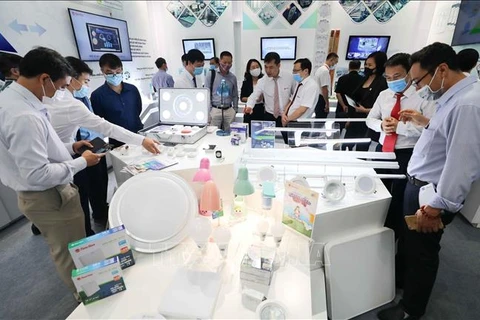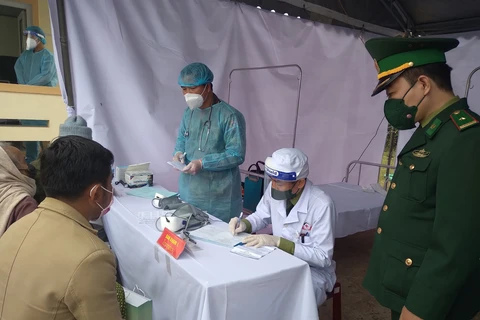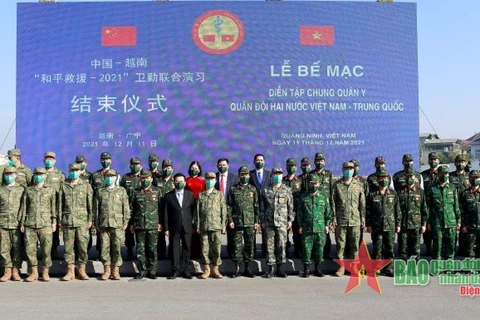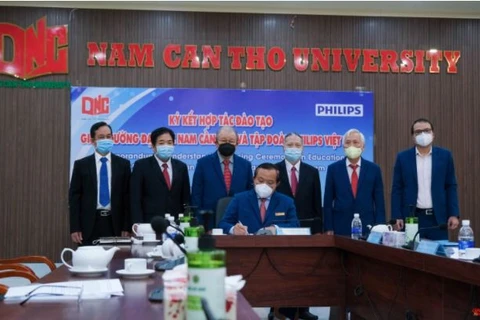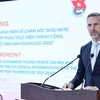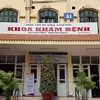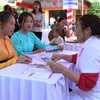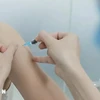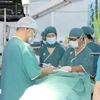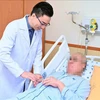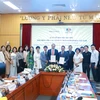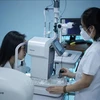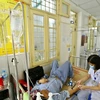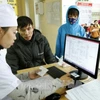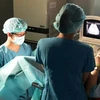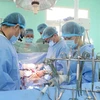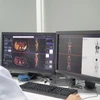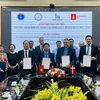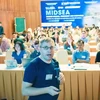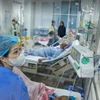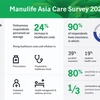 Vinh Phuc sends 60 doctors, physicians, nurses to help southern localities fight COVID-19 - Illustrative image (Photo: VNA)
Vinh Phuc sends 60 doctors, physicians, nurses to help southern localities fight COVID-19 - Illustrative image (Photo: VNA) The conference was jointly held by the People’s Committee of Thai Binh province, Thai Binh University of Medicine and Pharmacy, the World Health Organization (WHO), the United States Agency for International Development (USAID), the Health Advancement in Vietnam (HAIVN), the British Embassy in Vietnam, medical and pharmaceutical universities, domestic and foreign agencies and organisations.
In his opening remarks, Vice President of the National Medical Council and head of the Health Ministry’s Department of Science Technology and Training Pham Van Tac said that in order to meet the increasing demand for health, the quality of education at medical training institutions should be paid special attention, especially in the transition period in science and technology, and information technology amidst the complicated development of the COVID-19 pandemic.
The conference creates a wonderful opportunity for medicine and pharmacy universities, colleges in Vietnam to share and stimulate discussion on curriculum innovation, which improve the education quality and meet the social expectation, he affirmed.
USAID/Vietnam Mission Director Ann Marie Yastishock said that the agency is ready to share experience and solutions with Vietnam’s Ministry of Health and Universities of Medicine and Pharmacy in modernising medical training programmes in the country. She expressed her hope that this medical education conference would provide an opportunity to connect value networks with researchers and educators in the medical field in Vietnam and in many other countries, thus contributing to building and developing medical training in general.
During the two-day event, participants discussed urgent issues in current medical education such as the role of medical universities in preparing for the national licensing exam, autonomy of universities, accreditation of training programmes, difficulties and solutions in competency-based education, challenges and solutions for residency education, dental, pharmacy and nursing education programme reform and innovations and applications of digital transformation in medical education./.
VNA
